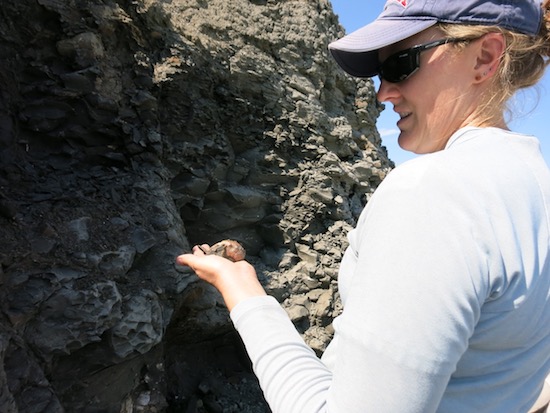STEM Shoutout: Dr. Corinne Myers
UNM prof is digitizing paleontologic treasures
Dr. Corinne Myers, an assistant professor in UNM’s Earth and Planetary Sciences Department, has been awarded a grant through NSF’s Advancing Digitization of Biodiversity Collections Program (ADBC). The grant allows her to hire students to aid her in digitizing paleontologic collections at UNM. Myers, a paleobiologist, is studying how long term environmental changes impact evolution of marine invertebrates. Myers studies a variety of mollusks mainly located in a shallow seaway that connected the Arctic Ocean to the Gulf of Mexico between 65 and 100 million years ago. Her work has been featured on National Geographic’s website.
“This seaway experienced lots of changes in water depth, changes in seawater temperature and salt levels, and even periodic severe lack of oxygen; collectively this makes it a great place to see how marine critters might have responded to these changes during their lifetimes and how that might have affected the origin of new species, the extinction of species, or the migration of species around the seaway,” Myers said.
In her research, Myers considers sedimentary rocks within the seaway to analyze different fossils and what the marine environment of a given location was like during a certain time period.
“I then apply a type of statistical modeling, called ecological niche modeling, to predict what kinds of habitats these species preferred to live in, and then map how they moved, died, or made new species when those habitats moved or disappeared. This all falls in the realm of macroecology and macroevolution,” she said.
Myers’ future work includes fieldwork in collaboration with the American Museum of Natural History in the states of South Dakota and Montana.

